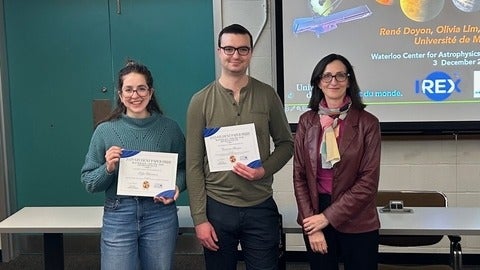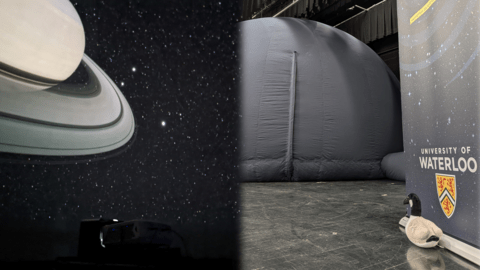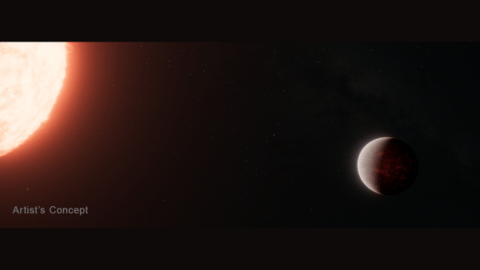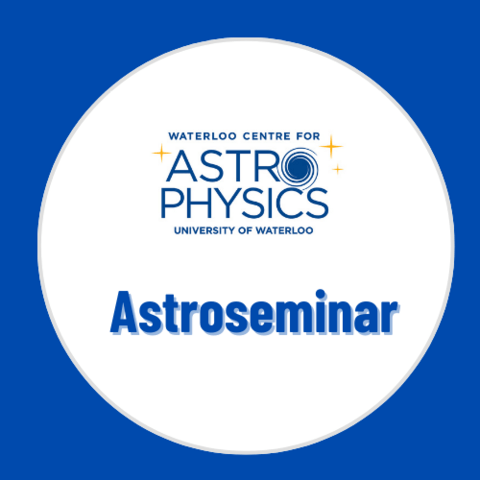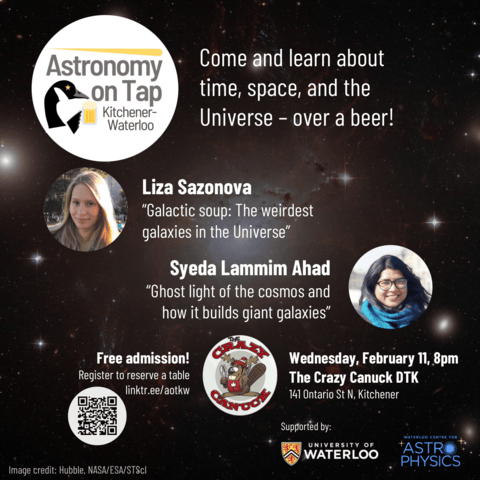...where the Universe is our laboratory.
The Waterloo Centre for Astrophysics (WCA) looks to the cosmos to solve the greatest mysteries of the universe. Here, world-class researchers and students come together in an atmosphere of curiosity, creativity and collaboration; exploring our cosmic origin to truly understand the physical processes at work in the Universe. From black holes to cosmology, we aim to understand what lies beyond the Earth. The possibilities for new discovery are limitless.
News
WCA Student Paper Prize 2025
Congratulations to graduate students Sofia Chiarenza and Cameron Morgan, who were awarded the 2025 WCA Student Paper prize. They were presented with their certificates by Dr Sara Seager, who sits on the WCA Governing Board.
The WCA student paper prize is awarded to the papers judged to be the best graduate student-led papers submitted in the past year (July 1 2024 - June 20 2025). They are evaluated on their importance to their field, originality of conception, difficulty of execution, clarity of the manuscript, and reproducibility.
Here, Cameron and Sofia describe their prize winning work.
Astro-Bubble on Tour
In October, three WCA members took the "Astro-Bubble" planetarium on tour, sharing space and astronomy with students and communities across Northern Ontario.
Lava planet defies expectations
Scientists have found a planet that challenges the long-held assumption that lava planets are too hot to sustain an atmosphere. Dr. Lisa Dang, a physics and astronomy professor at the Waterloo Centre for Astrophysics, and her collaborators made this discovery when they found a thick atmosphere around the rocky exoplanet TOI-561 b after flagging it as a planet of interest.
Events
Astroseminar - Charles-Édouard Boukaré
Charles-Édouard Boukaré’s research focuses on understanding the deep interior structure and evolution of rocky planets. His work lies at the intersection of earth and planetary sciences, computational fluid mechanics, mineral physics, and high-pressure chemistry.
Astronomy on Tap (Liza Sazonova and Syeda Lammim Ahad)
At Astronomy on Tap this month, WCA researchers Liza Sazonova and Lammim Ahad will speak about the largest, strangest galaxies in the Universe!
Astroseminar - Anwesh Majumder
Dr Anwesh Majumder was awarded his Bachelors (2014-2017) and Masters in Physics (2017-2019) with astro specialisation from Presidency University, Kolkata, India. After that, he moved to University of Amsterdam for his PhD (2019-2025). Anwesh followed that up with a short Scientist C position at Space Research Organisation Netherlands (March 2025-May 2025) before moving to Waterloo to take up a joint position with the WCA and Brian McNamara. Anwesh uses the XRISM X-ray telescope to understand how supermassive black holes affect the environment of galaxy clusters.







